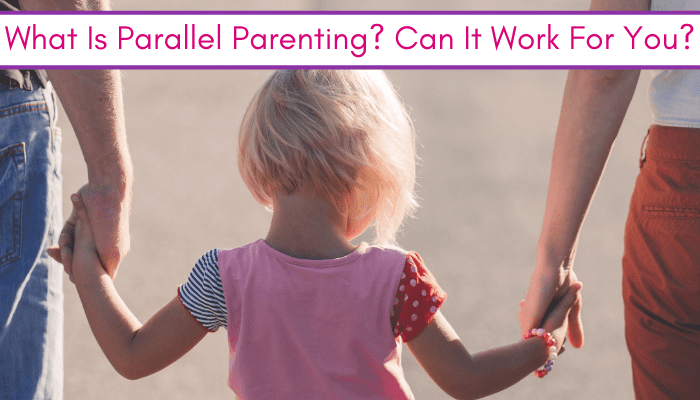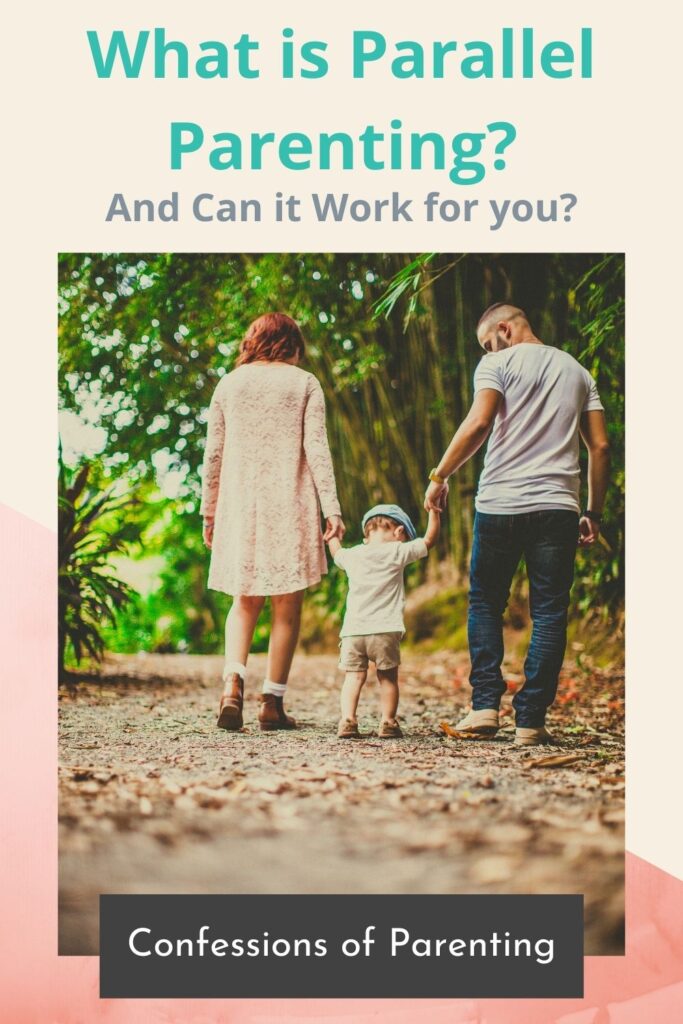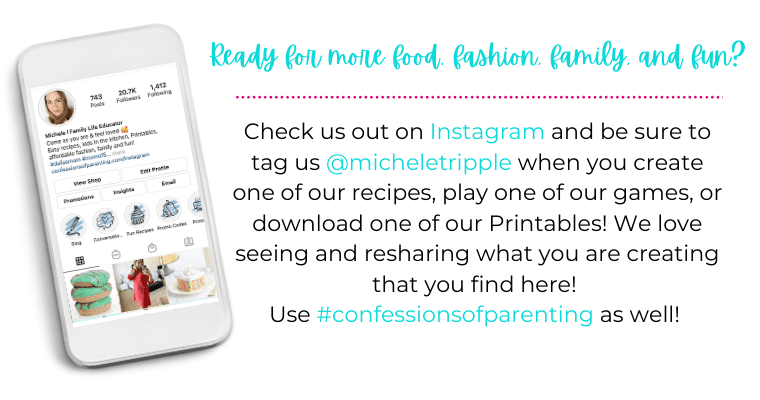Parallel Parenting might be the secret to success if you are struggling to co-parent with your ex? If there contention in the relationship that is affecting your kids you want to learn all about using this Parallel Parenting technique to see if it is a good fit for your family!
Parallel Parenting
If you’ve been through a divorce, you probably understand how messy they can be. Often there are feelings of resentment and hurt between exes. These challenges can become even more difficult when there are kids involved.
If you find yourself trying to co-parent with someone who you can’t seem to avoid arguments then you may benefit from using this form of parenting.

You will love these other parenting posts!
In this article you will find:
- What is Parallel Parenting?
- Pros of Parallel Parenting
- Cons of Parallel Parenting
- How to Practice Parallel Parenting
- The difference between co-parenting and Parallel Parenting

What is Parallel Parenting?
Something that divorced couples often struggle with is that they both want to be involved in their kids’ lives, but they find it difficult to work with each other, especially while setting healthy co-parenting boundaries. While many divorced couples may wish to have a healthy co-parenting relationship, that is not always possible, especially early after a divorce.
Enter parallel parenting, a style of parenting that allows each parent to be involved in their kid’s lives without being involved in their ex-spouse’s life.
Parallel parents limit in-person interaction with each other as much as possible so that they can avoid conflict. A plan is usually put into place regarding how parents will handle certain situations. Other than that, face-to-face communication is greatly limited.
Because this parenting style requires very little communication between parents, it should only be used as a last resort. It is best for exes who are unable to effectively communicate or problem-solve together at all. When conflict is high, parallel parenting can help save kids from high levels of stress in their lives.
Pros of Parallel Parenting
When the family experiences a lot of contention following a divorce, parallel parenting can help in many different ways. Parallel Parenting is a preferred parenting style of most couples when they are newly divorced when they are trying to navigate life after divorce.
- As a parent, having strong relationships with your kids is so important. Parallel parenting allows each parent to be very active in their kid’s life, without giving one parent more control.
- Because exes have very little contact with each other, kids are exposed to less conflict between their parents with this parenting style. This can be incredibly helpful for kids who may blame themselves for the divorce.
- Having to spend a lot of in-person time with your ex can be scary and anxiety-inducing, especially when there is a lot of animosity in the relationship. Because parallel parenting greatly reduces the amount of in-person interaction, it gives parents time to focus on themselves and their kids without having to worry about the next fight with their ex.
- Much like other parenting styles like conscious parenting, parallel parenting can help put the focus back on the needs of the kids involved. Because kids can suffer greatly due to divorce, this is a huge benefit to parallel parenting.
Cons of Parallel Parenting
While this style of parenting has some benefits, there are some downsides to it as well.
- This style does not work for everyone. Like most parenting styles, parallel parenting is not a “one-size-fits-all” solution for every divorced couple. Each family should look at this and decide if it is going to be best for you.
- Parallel parenting is not always a long-term solution. Usually, it is used as a period to allow the dust to settle between the divorce and reconciliation – whatever that looks like for the divorced couple. Divorced couples may find that as some healing takes place, they are better able to get to a place where they are able to co-parent together instead of avoiding each other most of the time.
Think parallel parenting may work for you and your family? There are some important things that need to be done to effectively practice this parenting style.
How to Practice Parallel Parenting
- Work together to create a parenting plan. This can be one of the most awkward parts of parallel parenting, but it is one of the very necessary steps to make it work. The parenting plan should be written down and should include how each parent plans to raise their kids separately. Parents should also write down the agreement on how kids spend time between houses.
- Even though parallel parenting greatly limits the amount of in-person interaction between exes, it does not mean that they do not communicate at all. In fact, communicating to some degree is very important for this parenting style to work. One way divorced couples have found that helps them communicate is by keeping a parenting journal. This can be a simple notebook or planner that follows the kids to whatever house they are at. It includes information about upcoming appointments, lessons, or other time commitments for the kids. It can also be used to discuss concerns one parent may have about school or about behaviors the kids have been exhibiting.
- Another important aspect of parallel parenting is planning ahead for “emergency” situations. These situations can include when one parent is ill, has to leave town, or has to work late. How will kids be taken care of during these instances? Effective practice of parallel parenting requires these things to be discussed ahead of time to avoid further conflict later.
Parallel Parenting vS. Co-Parenting
Parallel parenting has a lot of differences from co-parenting, but over time it can transition into a good co-parenting relationship. Some of the ways that the two parenting styles differ are:
- Parallel parenting does not include celebrating special occasions and holidays together. Usually, kids alternate between parents for holidays and birthdays.
- Parents who practice parallel parenting often don’t practice the same parenting style in their own homes. Day-to-day parenting decisions are made without the input of the other parent.
- Because face-to-face time is limited with parallel parents, they usually communicate through some third party like a co-parenting app or a parenting journal.
Because parallel parenting puts so much focus back on the kids, many parents find that they are able to strengthen the parent-child relationship all while keeping the peace with their ex. Even though this parenting style may not be the ideal, effective practice, it can help lead to more positive interactions and co-parenting experiences in the future!
Have you ever considered parallel parenting? What do you like about it? Tell us about it in the comments!
Love what you see? Leave a comment and don’t forget to rate it below! We always love knowing how your recipe turns out! Don’t forget to tag me on Instagram @micheletripple to show me your finished product!

Looking for more information on blended families? Check out these great posts!
- Long-Distance Parenting
- Creating a Strong Blended Family
- How to Avoid Overstepping Boundaries with StepKids
- Why His Ex-Wife Hates You
- Bonding with StepKids

Michele Tripple is a renowned author and expert in the fields of parenting, relationships, and personal development. With her degree in marriage and family studies, her experience as a Family Life Educator, and over a decade of experience as a professional writer, Michele has authored books that provide practical advice and insights into improving family dynamics and personal growth. Her work is celebrated for its blend of research-driven information and relatable, real-world applications. Michele has been a keynote speaker at conferences and has contributed to numerous publications and media outlets, solidifying her reputation as an authoritative voice in her field and helping families build relationships.
